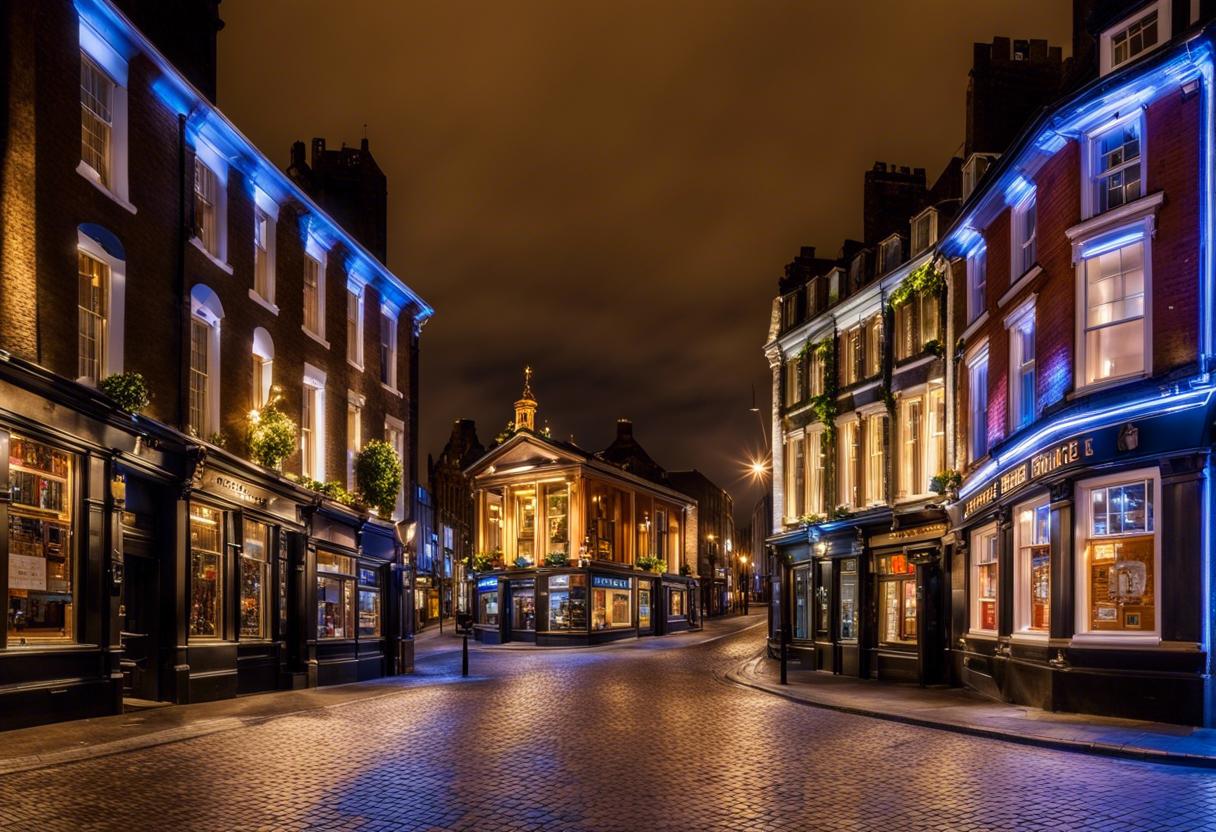The Cavehill Inn, a former notorious loyalist pub in north Belfast, infamous for its intimidating atmosphere, had fallen into disrepair when it was put up for sale five years prior. Its condition left it largely avoided by locals – in particular, Catholics who feared confrontation. The establishment was a sight for sore eyes, with its cracked windows, shattered rooftop and lack of basic facilities such as heat and hot water.
Fast forward to today, it glows with new life and culture, now known as Ben Madigan’s bar and kitchen. It’s spotless oak floors gleam under the work of diligent cleaners, navy-blue parasols adorn the outdoor dining space, and during Pride week, rainbow flags flutter from its restored rooftop. Events such as the sold-out Abba tribute concert, drag bingo, comedy shows, and trivia nights are all part of its new charm, inviting a mixed clientele from both sides of the community.
This transformation was unthinkable in 2002 when sectarian tensions necessitated a UK government minister to close the pub during an Old Firm match. Today, the only vestige of its once troubled past is a weathered union flag attached to a lamppost nearby.
The landmark establishment sits at an intersection of the nationalist Cavehill Road and the unionist Westland Road. Kelvin Collins, its new owner, spotted the ‘For Sale’ sign while driving to a summer wedding in 2019.
“Everyone I spoke to said: ‘Are you out of your mind?’” he says. “I might have been a tad crazy, but I was certain about what I was doing. It carried potential I couldn’t ignore. In my vision, a place like this should be the gem of the community – an inviting building with a beautiful south-facing terrace… It just needed to shed its past.”
A Catholic from Derry, Collins has been part of the hospitality scene since the ’90s and relocated to north Belfast with his spouse about 13 years ago. “Upon our arrival, I wouldn’t have thought about taking on this bar, but times have changed. Having resided in this area long enough, I knew transformation was possible,” he commented.
“One of the key challenges was enticing people to step inside. Once over the threshold, we knew we could win them over.” And win them over they did. Within the first week of operations, in November 2019, the rejuvenated pub located at the base of Cave Hill already had a Union flag swaying proudly outside.
With an air of apprehension, Collins reached out to various council members, unsure of his next steps. The advice he received was to stay the course and not remove the source of his distress, as it’d only fan the flames. Initially, he grappled with the issue, but once it was clear that it wasn’t impacting his clientele, he decided to overlook it.
For the refurbishment, he was partnered with Manager Daley Carnduff who, like him, worked tirelessly seven days a week. In a region where paramilitaries were popular, with a loyalist brigadier often seen at Cavehill Inn, the renovation of the pub brought about a cultural shift, in the opinion of another local entrepreneur.
Two years prior, Jim and Claire Mallon set up an artisanal coffee shop not far away. The couple was considering leasing a space four properties across but opted against it before setting up their business ten years ago.
Jim expressed that had they launched their venture then, they would have likely been subjected to paying protection money, a harsh reality of those times. The transformation of the entire block happened following Kelvin’s bar opening.
A priest was spotted having his meal at Ben Madigan’s last month, marking the first in over two decades since his past meeting with loyalist paramilitaries during sensitive talks at the Cavehill Inn amidst the Holy Cross school conflict.
Fr Gary Donegan, who was instrumental in resolving the dispute that earned international attention, remembered the place being no more than a glorified speakeasy with inadequate lighting. He visited the bar recently owing to renovations being done in their new monastery kitchen and was taken aback by the extent of changes. He was surprised when it was suggested as a spot for lunch, completely oblivious to the transformations.
Considering that the Passionists, his congregation, were dining at the location that was once the epicentre of the Holy Cross blockade, showcased a remarkable change from 23 years ago. A local resident Sinéad Larkin concurs, drawing comparisons to the atmosphere she experienced visiting her sister-in-law in Dún Laoghaire or the Lisburn Road in southern Belfast.
She asserts, “We deserve it.” Expressing her sentiments further, she says, “What’s pleasant about this situation is its ordinariness; an aspect which we, up North, have yet to experience or reap the benefits from.”

